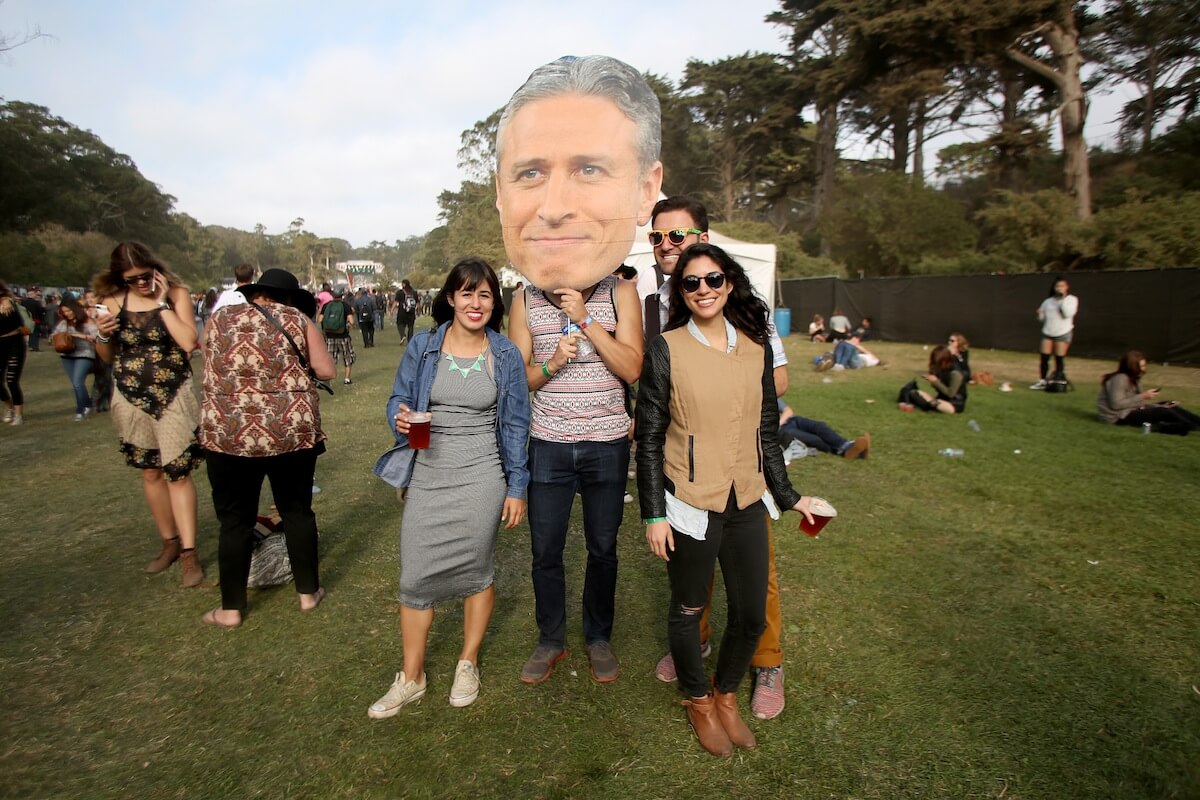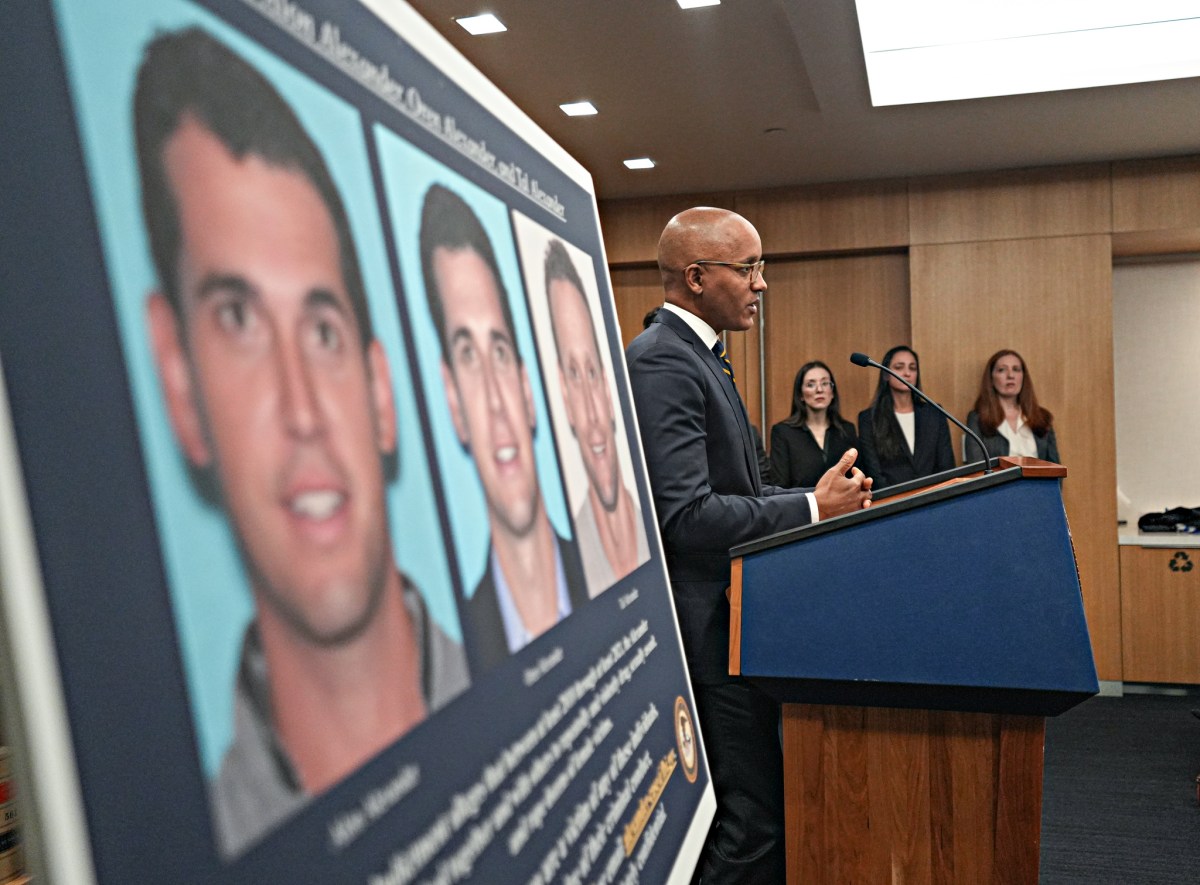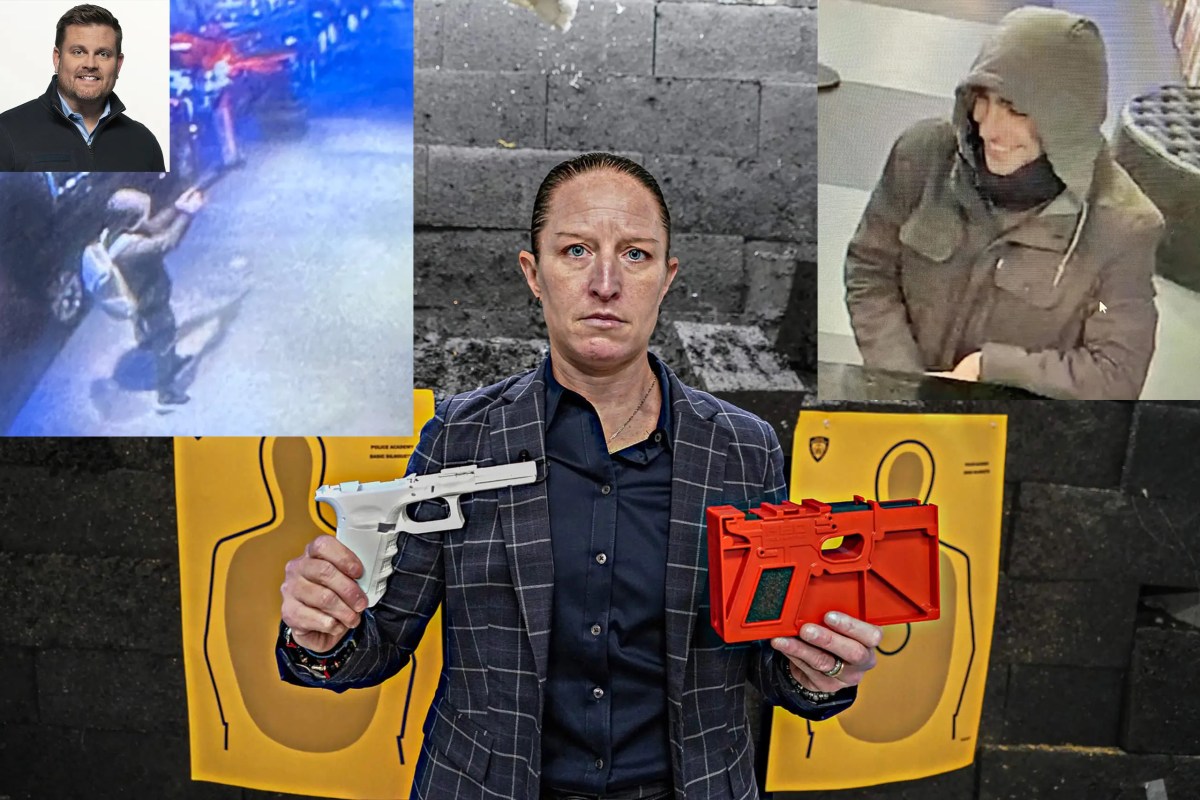Last summer Jon Stewart disappeared for two and a half months so he could head to Jordan and direct a movie. The result, “Rosewater,” is not a comedy, though it has jokes. It’s a telling of what happened to Maziar Bahari (played by Gael Garcia Bernal), an Iranian journalist who wound up detained and tortured by Tehran officials for 118 days — in part because of his appearance on “The Daily Show.” But Stewart insists the jobs of making TV and making movies aren’t that different. Nice shout-out early in the film to Pier Pasolini’s “Teorema.”
You gotta respect the “Teorema” shout-out! Maziar may be the most culturally literate individual I’ve ever met in my life. His vast knowledge of literature and art and music and film — it’s actually annoying. Are you a cinephile yourself?
I am not. I am absolutely not. Compared to him I am living in the time before they had talkies. He knows everything.
How did you prepare to direct a film? Did you bug filmmakers?
There were a couple people I went to, just to ask, “Is this viable? I’ve written a script. Is it a script? Do you look at it and say, ‘You know what, it turns out it’s a recipe. This is actually mock-apple pie, it’s not a movie.’” Were there things that surprised you about filmmaking, things you weren’t prepared for?
The availability of craft services. That was 24 hours of hummus and apricots, in a way that was quite surprising — and quite delicious. The process here wasn’t alien to the process we use on the show. The difference is at the show we’re in the same location every day. But we use the same sort of mechanics. So much of our time was spent trying to figure out how we can accomplish what we want to accomplish better and more efficiently. I had good actors, I had a good d.p., sound crew, production designers. So it was about making sure that the alchemy was right, that we were doing whatever we needed to make sure it all worked. You also, with a movie, are spending a lot more time making a bigger thing work — though not that much time.
We had five weeks. It definitely felt like, “F—, I wash I had more time.” More time, a little more money would have helped. That being said, there’s nothing like the clock ticking for focus. In some ways the urgency helped infuse the project with something it might not have had otherwise. You’ve said you don’t think “The Daily Show” has changed the world in a way you may like.
Well, it’s not intended to. I don’t see evidence of it. And that’s not its purpose.
Do you feel that’s different with a politically-charged movie?
I view it very similarly to the show, which is its purpose is to draw attention to something so that a conversation can occur. You always have that feeling that you’re pointing at things, going, “Why don’t you guys look at that! There’s something over there!” I never viewed this as a separate entity from what I normally do at the show. Obviously it’s a different format and more long-form. But it still struck me as being of the same language, in some respects. It wasn’t like going out and doing a Laurie Anderson production of music and light that expressed my feelings about Iran. This is a more serious production than “The Daily Show.”
I don’t believe so. On “The Daily Show,” we use the tools of satire to address war, death, famine, all kinds of things. This is we’re using the tools of cinema to address very similar themes and subtexts. Can you talk about the humor in this film? It’s far from a comedy, but there are jokes.
I think humor was so central to Maziar’s survival and central to his memoir. I wanted to make sure we got humor in there, but in a way that we didn’t impose it on it — not in any kind of contrivance but in a way that allowed it to grow organically from those situations. If we had heightened it and created farcical elements around it, it would have diminished just how the reality of the absurdity was so stark. There’s that scene where Maziar is allowed to call his wife for the first time, and in the middle of being berated [by his interrogator, played by Kim Bodnia] he has to dial “9” to get out. It’s an in-your-face reminder that this is an office — this guy works in an office. This film takes time to show everyday life in Iran. So many portrayals of it, especially by the West, tend to dwell only on its bad parts. The film “Not Without My Daughter” seems to exist primarily to tell people Iran is evil. And it’s somewhat more complex than that! The dialogue between our two countries is we refer to them as part of the axis of evil and they refer to us as the Great Satan. I think the bar was set relatively low for this film’s ability to present a slightly more nuanced version than that. But that’s what we were trying to do with the pieces on Iran on “The Daily Show.” We were trying to establish that it’s not a monolith, and it’s certainly not evil. And their ignorance of our culture is only matched by our ignorance of theirs. There is a good portion of individuals there and a good portion of individuals here that would have no problems with each other. You do slip in references to America’s long, checkered history with Iran.
It was important to get the scene in about the coup in 1953 that was led by the CIA. We may view Iran as paranoid and slightly delusional, and there are elements of that within the regime, but it is not without precedent.
Interview: Jon Stewart says ‘The Daily Show’ is as serious as his film ‘Rosewater’

Getty Images
Follow Matt Prigge on Twitter@mattprigge

























